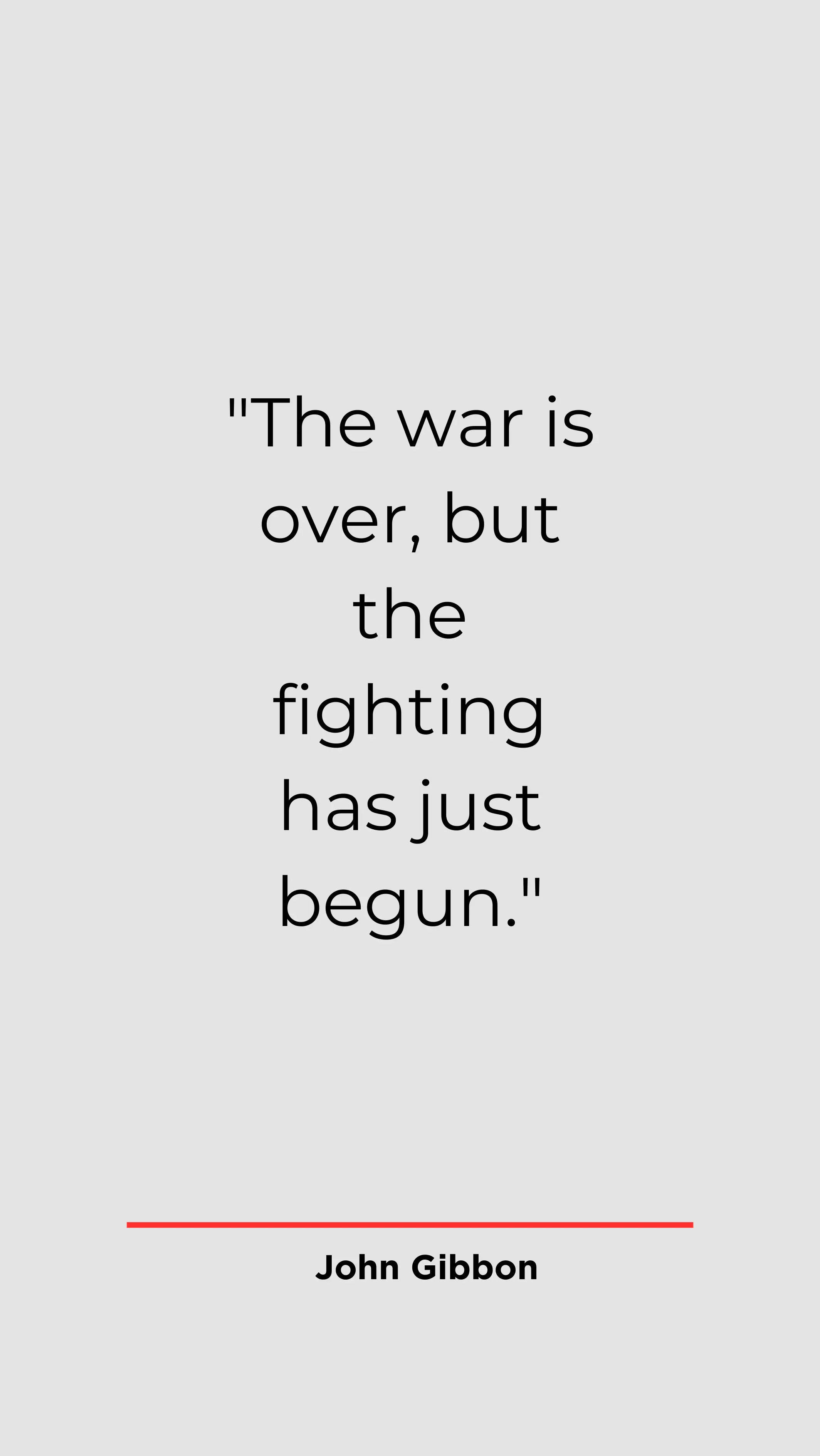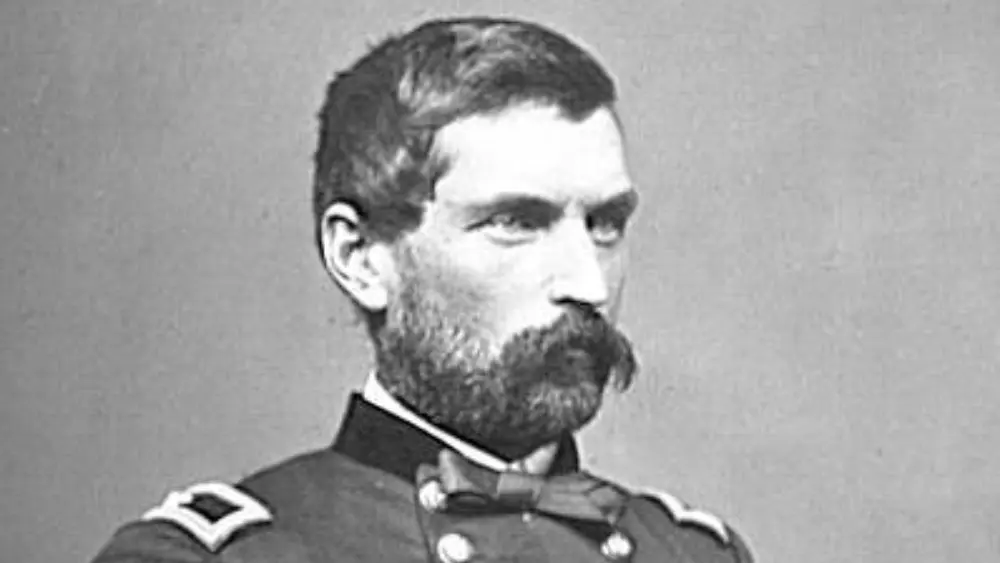John Gibbon, born on April 20, 1827, in Philadelphia, Pennsylvania, was a distinguished Union Army officer during the American Civil War, renowned for his leadership and strategic acumen. Gibbon played a significant role in the Battle of Gettysburg, one of the most pivotal engagements of the war.
Early Life and Military Education
John Gibbon’s formative years were characterized by a resolute dedication to military service. His journey began with his enrollment at the United States Military Academy at West Point, a prestigious institution renowned for producing exceptional military leaders. In 1847, Gibbon successfully completed his education at West Point, graduating with the knowledge, skills, and training necessary to embark on a career in the United States Army.
His time at West Point not only provided him with a solid academic foundation but also instilled in him the values of discipline, leadership, and a deep sense of duty to his country. This early education and military training would serve as the bedrock upon which he would build his distinguished career as a military officer, eventually becoming a notable figure in the annals of American military history.
John Gibbon: Mexican-American War and Interwar Period
John Gibbon’s military career took its first significant turn during the Mexican-American War, which raged from 1846 to 1848. It was in this conflict that he would experience his baptism by fire, serving with distinction and demonstrating his dedication to duty. Gibbon’s contributions during the Mexican-American War showcased his courage and competence, foreshadowing the remarkable military career that lay ahead.
In the years that followed the Mexican-American War and leading up to the American Civil War, Gibbon’s assignments encompassed a diverse range of responsibilities. His service included frontier duty, where he played a role in the country’s westward expansion, as well as instructing the future leaders of the U.S. military at West Point. This interwar period not only honed his leadership skills but also broadened his expertise, making him a well-rounded and seasoned military officer prepared for the crucial challenges that lay ahead during the Civil War. Gibbon’s experiences during this time served as a crucible, shaping him into a capable and adaptable leader who would go on to make significant contributions to American military history.
Civil War and Early Engagements
As the American Civil War erupted in 1861, John Gibbon faced a momentous decision, one that would define his legacy in the annals of military history. He unwaveringly chose to remain loyal to the Union, aligning himself with the cause to preserve the United States. Gibbon matched his commitment to the Union cause with remarkable military acumen, and he ascended through the ranks with remarkable speed. In 1862, he attained the rank of brigadier general, a testament to his leadership qualities and strategic prowess.
Throughout the unruly years of the Civil War, Gibbon found himself at the forefront of some of the most pivotal engagements. He showcased his leadership and valor in battles that would echo through history, including the Battle of Ironclads at Hampton Roads, Virginia. This early period of the war would not only solidify his reputation as a skilled military commander but also set the stage for his future contributions to the Union’s war effort. Gibbon’s unwavering loyalty to the Union and his combat experience in these formative years of the Civil War would ultimately play a significant role in the Union’s quest to restore the nation and bring an end to the bloodshed of the Civil War.
John Gibbon: The Battle of Gettysburg
John Gibbon’s most enduring and illustrious moment in military history came during the pivotal Battle of Gettysburg, fought from July 1 to 3, 1863. Gibbon received command of a division within the II Corps of the Army of the Potomac, and his leadership proved indispensable during this momentous engagement. On the third day of battle, as Confederate forces launched the influential Pickett’s Charge, Gibbon’s division held a critical position on Cemetery Ridge, a linchpin in the Union defensive line.
Under Gibbon’s command, his troops displayed extraordinary courage and resilience. They withstood the relentless Confederate onslaught and played a pivotal role in repelling Pickett’s Charge. This Confederate assault, often regarded as the high watermark of the Confederacy, was decisively thwarted in no small part due to Gibbon’s leadership and the unwavering resolve of his division. The Battle of Gettysburg would go on to become a turning point in the American Civil War, and John Gibbon’s role in this historic confrontation solidified his place as a prominent figure in the annals of military history, recognized for his leadership, valor, and contributions to the Union’s ultimate victory.
Post-Gettysburg and Later Career
After his pivotal role in the Battle of Gettysburg, John Gibbon’s unwavering commitment to the Union cause led him to continue his service in the Union Army. He remained a steadfast presence on the battlefield and participated in several critical campaigns that would shape the outcome of the American Civil War. Notable among these was the gruelling Overland Campaign, where Union forces under General Ulysses S. Grant engaged in a series of intense battles against Confederate forces led by General Robert E. Lee. Gibbon’s leadership and determination during this campaign demonstrated his resilience and dedication to duty in the face of challenging and protracted warfare.
Gibbon’s military prowess was further evident during the prolonged Siege of Petersburg, a critical operation that ultimately led to the fall of Richmond, the Confederate capital. Throughout these campaigns, his leadership earned him not only the respect of his fellow officers but also the admiration of his superiors. John Gibbon’s later career in the Union Army was marked by his unwavering commitment to the Union cause and his ability to inspire those under his command, solidifying his reputation as a distinguished military leader who played a vital role in the Union’s ultimate triumph in the American Civil War.

John Gibbon: Later Years and Legacy
Following the conclusion of the Civil War, John Gibbon continued to serve his country in various capacities. His military service extended to the western frontier of the United States, where he was involved in maintaining order and security in rapidly changing and sometimes challenging environments. Gibbon’s dedication to duty persisted, and his experience on the frontier further honed his leadership skills and adaptability.
John Gibbon’s legacy is closely tied to his distinguished military career, with his leadership during the Battle of Gettysburg serving as a defining moment. His role on Cemetery Ridge was instrumental in repelling Confederate forces and contributing to the Union’s victory. Gibbon’s commitment to duty, strategic acumen, and ability to lead under intense pressure continue to be a source of inspiration and admiration in the annals of American military history. Beyond his battlefield accomplishments, Gibbon’s contributions to military literature and his role in the development of Army regulations have left a lasting mark on the United States military, cementing his place as a respected figure whose legacy endures in the hearts and minds of those who study and honour American military history.











